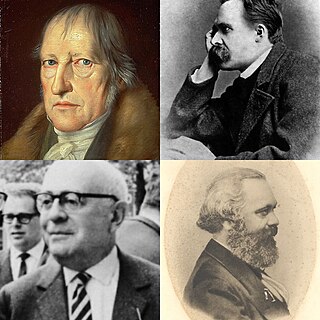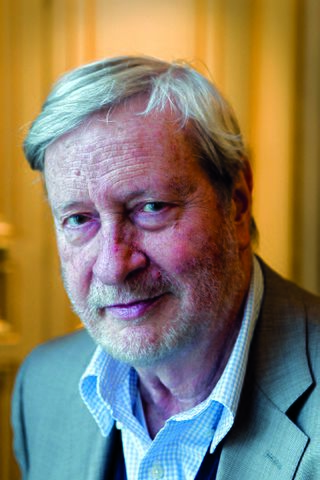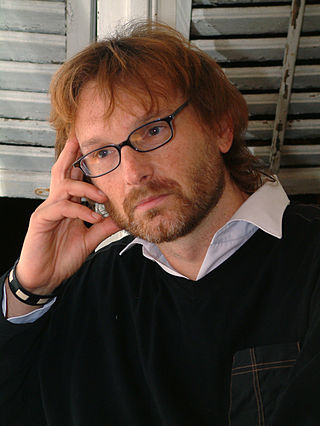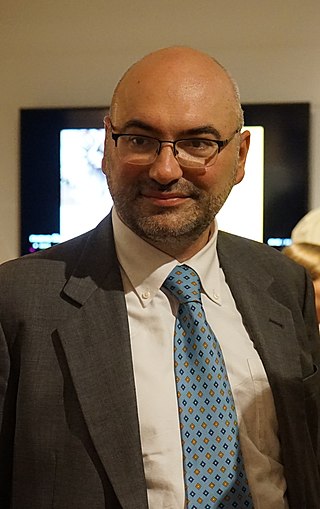
Hans-Georg Gadamer was a German philosopher of the continental tradition, best known for his 1960 magnum opus on hermeneutics, Truth and Method.

Hermeneutics is the theory and methodology of interpretation, especially the interpretation of biblical texts, wisdom literature, and philosophical texts. As necessary, hermeneutics may include the art of understanding and communication.

German philosophy, meaning philosophy in the German language or philosophy by German people, in its diversity, is fundamental for both the analytic and continental traditions. It covers figures such as Gottfried Wilhelm Leibniz, Immanuel Kant, Georg Wilhelm Friedrich Hegel, Karl Marx, Friedrich Nietzsche, Martin Heidegger, Ludwig Wittgenstein, the Vienna Circle, and the Frankfurt School, who now count among the most famous and studied philosophers of all time. They are central to major philosophical movements such as rationalism, German idealism, Romanticism, dialectical materialism, existentialism, phenomenology, hermeneutics, logical positivism, and critical theory. The Danish philosopher Søren Kierkegaard is often also included in surveys of German philosophy due to his extensive engagement with German thinkers.

Richard McKay Rorty was an American philosopher. Educated at the University of Chicago and Yale University, Rorty's academic career included appointments as the Stuart Professor of Philosophy at Princeton University, the Kenan Professor of Humanities at the University of Virginia, and as a professor of comparative literature at Stanford University. Among his most influential books are Philosophy and the Mirror of Nature (1979), Consequences of Pragmatism (1982), and Contingency, Irony, and Solidarity (1989).
Critique is a method of disciplined, systematic study of a written or oral discourse. Although critique is frequently understood as fault finding and negative judgment, it can also involve merit recognition, and in the philosophical tradition it also means a methodical practice of doubt. The contemporary sense of critique has been largely influenced by the Enlightenment critique of prejudice and authority, which championed the emancipation and autonomy from religious and political authorities.
John David Caputo is an American philosopher who is the Thomas J. Watson Professor of Religion Emeritus at Syracuse University and the David R. Cook Professor of Philosophy Emeritus at Villanova University. Caputo is a major figure associated with postmodern Christianity and continental philosophy of religion, as well as the founder of the theological movement known as weak theology. Much of Caputo's work focuses on hermeneutics, phenomenology, deconstruction, and theology.
Postmodern theology, also known as the continental philosophy of religion, is a philosophical and theological movement that interprets Christian theology in light of postmodernism and various forms of post-Heideggerian thought, including post-structuralism, phenomenology, and deconstruction.
Kostas Axelos was a Greek-French philosopher.

Gianteresio Vattimo was an Italian philosopher and politician.

Luigi Pareysón was an Italian philosopher, best known for challenging the positivist and idealist aesthetics of Benedetto Croce in his 1954 monograph, Estetica. Teoria della formatività, which builds on the hermeneutics of the Austrian philosopher Ludwig Wittgenstein.

Mario Kopić is a philosopher, author and translator. His main areas of interest include: the history of ideas, the philosophy of art, the philosophy of culture, phenomenology and the philosophy of religion.
Maurizio Ferraris is an Italian continental philosopher and scholar, whose name is associated especially with the philosophical current named "new realism"—Ferraris wrote the Manifesto of New Realism in 2012, which was published by SUNY Press in 2014) -- which shares significant similarities with speculative realism and object oriented ontology.

Dario Antiseri is a Philosophy professor. He holds a bachelor's degree in Philosophy from the University of Perugia and for many years he has been Full Professor of Methodology of the Social Sciences at LUISS, in Rome. He taught in Siena, Padova and Rome, where he was also the Dean of the Faculty of Political Science. He retired from academia in 2010. He is an important scholar of Karl R. Popper and Hans-Georg Gadamer, and in many works he tries to show the links between fallibilism and hermeneutics. In 1996, he published a book about Gianni Vattimo's weak thought. With the Italian philosopher Giovanni Reale, he is also author of an important treatise of philosophy in three volumes, which is the most widely used philosophy textbook in Italian schools.
The following is a bibliography of John D. Caputo's works. Caputo is an American philosopher closely associated with postmodern Christianity.

Bijan Abdolkarimi is an Iranian philosopher, thinker, translator, and editor. His main interests are ontology, political philosophy and the critique of religious and intellectual traditions. He claims to challenge the dominant ideological discourse in Iran. He has participated in debates at Iranian universities and also in IRIB TV4 in which he has opposed the notion of Islamic humanities. He is also a scholar of Heidegger's thought and philosophy.
Dr. Jens Michael Zimmermann is a German-Canadian Christian philosopher, theologian, and professor who specializes in hermeneutics and the philosophical and theological roots of humanism.

Paolo Diego Bubbio is an Italian philosopher and Associate Professor of Theoretical Philosophy at the University of Turin. He holds the Italian National Scientific Habilitation as a Full Professor. Additionally, he is an Honorary Associate Professor at Western Sydney University. Bubbio is known for his proposal of “kenotic thought” and for his research on post-Kantian philosophy, philosophical hermeneutics, and the philosophy of religion. He is the editor of the "Contemporary Studies in Idealism" book series for Lexington Books.
Santiago Zabala is a philosopher and ICREA Research Professor of Philosophy at the Pompeu Fabra University. His books have been translated into several languages and his articles have been published in The Guardian, Al Jazeera English, The New York Times, and the Los Angeles Review of Books, among other international media outlets. In the fall of 2024 the prestigious cultural institution Circulo de Bellas Artes of Madrid will host an exhibition based on Zabala’s aesthetic theory titled The Greatest Emergency
In critical theory, pharmakon is a concept introduced by Jacques Derrida. It is derived from the Greek source term φάρμακον (phármakon), a word that can mean either remedy, poison, or scapegoat.

Franca D'Agostini is an Italian philosopher.











